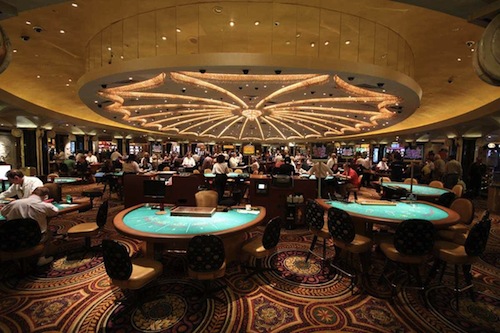
Casino gaming has long been a topic of fascination and controversy, drawing in millions of players globally. With a mix of luck, skill, and the excitement of uncertainty, casino games offer an exciting escape from everyday life. However, as entertainment becomes ever more available, it calls for a more thorough examination of the ethical implications surrounding these games.
At the heart of the discussion lies the question of whether casinos promote responsible gaming or exploit at-risk individuals. The appeal of potential winnings versus the truth of losses can create a challenging dynamic, and understanding this balance is crucial for both players and operators. As we delve into the ethics of casino gaming, we will explore the duties of casinos, the effects on society, and the measures that can be taken to foster a better gaming environment.
The Impact of Casino Gaming on Society
Gambling in casinos has a notable influence on society, affecting not only the financial landscape but also interpersonal dynamics and community structures. The revenue generated from casinos can lead to employment opportunities and boost local economies, as they provide numerous employment opportunities in different sectors including hospitality, entertainment, and shopping. However, while the economic advantages can be substantial, communities often struggle with the potential negative impacts that arise from higher gambling activity.
Moreover, the presence of casinos can lead to an increase in gambling addiction, presenting serious challenges for individuals and families. The thrill of casino games can quickly evolve into a compulsive habit, affecting connections with others and leading to monetary issues. Many individuals may find it difficult with the loss of control over their gambling behaviors, resulting in a need for assistance programs and interventions to address this increasing issue. The social cost of gambling addiction can extend through kinships and neighborhoods, creating an urgent need for sensible gambling approaches.
In addition to the economic and social ramifications, casino gaming often showcases cultural attitudes towards uncertainty and leisure. It can foster a sense of excitement and leisure, attracting tourists and boosting tourism. However, this allure may also conceal the wider implications of gambling as a form of entertainment, provoking ethical questions about its promotion and accessibility. As communities weigh the advantages and disadvantages of casino gaming, the need for sensible approaches and oversight becomes increasingly critical in ensuring that the beneficial elements are maximized while reducing the potential harms.
Moral Issues in Gambling Practices
The morality of gambling operations often center around the potential for dependency and its effects on people and households. Betting can lead to significant monetary distress, impacting not only the gamblers but also their loved ones. As people become caught in the allure of winning, many lose sight of their financial limits, which can result in catastrophic outcomes such as insolvency. This raises moral questions about the responsibility of gambling establishments in promoting safe gambling habits and offering support for those who may be struggling with betting addiction.
Another major issue is the promotion of betting to at-risk groups. Casinos often aim at low-income people or neighborhoods with the promise of quick rewards, which can continue patterns of financial struggle and despair. In this context, the ethics of marketing strategies used by casinos come under scrutiny, as they may take advantage of the desperation of individuals seeking an escape from financial hardships. This exploitation raises ethical questions about the integrity of the gambling industry and its obligation to safeguard its most vulnerable customers.
Additionally, the impact of gambling operations on the community as a entirety cannot be overlooked. While some argue that gambling establishments create employment and stimulate local economies, others point to the social costs associated with problem gambling, increased criminal rates, and a burden on public resources. Balancing financial advantages with the risk for community issues presents a complex ethical dilemma for lawmakers and casino operators alike. สล็อต The difficulty lies in finding a responsible approach that takes into account the well-being of people and communities while still allowing for the pleasure of gambling gaming.
Oversight Structure and Duties
The regulatory system related to gambling operations is developed to ensure equity, honesty, and participant security. Multiple government bodies and gaming commissions establish and enforce regulations that dictate how casino games operate, the criteria for activity design, and the protocols for managing winnings. These regulations change by locale but typically involve permit requirements for providers and stringent measures to stop cheating and scams.
In furthermore to oversight bodies, casino operators bear significant responsibility in preserving moral standards within their establishments. They must enforce ethical gaming practices that encourage player security and consciousness, including providing self-exclusion options and sharing information about the risks connected to gaming. Operators are also accountable for instructing staff to recognize signs of problem gambling and be aware of the appropriate steps to help visitors in need.
Additionally, transparency in casino operations is vital for building and preserving public faith. Operators should provide clear details about the odds of activities, advertising deals, and any related hazards. By promoting an culture of honesty and trust, gambling establishments can help lessen the likelihood harmful impact of gaming while enhancing the overall betting experience for all gamblers.
